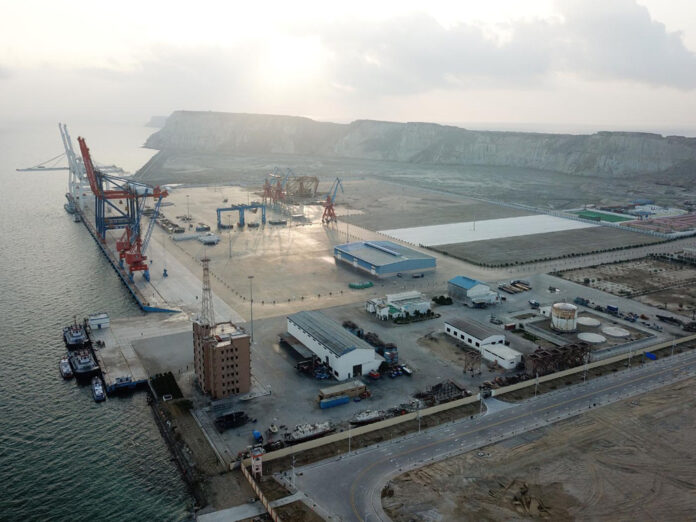According to the United Nations Development Program (UNDP), Pakistan would have to resolve many obstacles including macroeconomic, legal, and regulatory issues as well as coordination problems to rapidly embark on the next phase of projects planned under the China-Pakistan Economic Corridor (CPEC).
In its paper, “Development Advocate Pakistan (DAP) on Regional Connectivity and Corridors,” the UNDP claimed that Pakistan’s ability to fund economic corridors through indigenous resources is restricted due to low rates of mobilization of domestic resources.
Due to policy and administrative gaps, the ability to raise taxes at federal and provincial levels remains low.
The report suggested that recent attempts by Pakistan to introduce CPEC projects have met with reasonable progress. The energy projects which have already been completed have contributed to additional capacity, particularly in the power and industrial sector. Improved energy supplies to Pakistan’s residential and industrial users have been a key result of early harvest interventions by the CPEC. There remain constraints in power transmission and distribution which will be a key focus for the CPEC’s future phase.
The energy sector’s overall supply chain will also need improvements to meet the needs of nine special economic zones.
Efforts related to physical connectivity can provide enhanced dividends if complemented by initiatives to negotiate market access for Pakistani exports, and accelerate trade facilitation reforms including liberal visa policies, improved border area management, and sharing of trade and transportation information, the report added.
Not all parts of the population, however, are participating equally in the implementation phase of major infrastructure projects.
Therefore it is necessary for those who will bear the adjustment costs of any adverse economic outcomes or increased competition from abroad to create social and environmental safeguards.
The report noted that the capacity of provincial governments to collect taxes is also limited given that progressive tax bases such as land, urban properties, agriculture, and services now fall within their jurisdiction.
As part of the Expanded Fund Facility of the International Monetary Fund (IMF), Pakistan has committed to supporting federal and provincial tax administration capacity and enhancing audit capacity, while reinforcing efforts to better record the economy.
It is typically not easy to collect government revenues from tax or non-tax sources when a country is experiencing low economic growth.
Hence, it is now important to look to private funding.
The local private sector has indicated a strong willingness to invest in transport, oil, and gas production, and all sectors of information technology are critical to creating an economic corridor.
The position of the development partners will remain crucial when it comes to creative financing. Yet most donors want to see macroeconomic conditions reinforced and fiscal discipline increased.
Nevertheless, although the government has recently passed the Public Finance Act, its implementation would be necessary to prove that Pakistan’s budgetary expenditure is fair and transparent.
The study also noted that many legal and regulatory problems bar Pakistan from hosting large-scale investments. This prompted the government to launch the Regulatory Modernization Initiative for Pakistan (PRMI). This is also intended to address opacity within the federal and provincial tax system.
The report further said that although the CPEC Authority could serve as a one-window for the Chinese ventures, the Pakistan Investment Board (BOI) would have to presume that non-China investors have the same entitlement standard in place.



